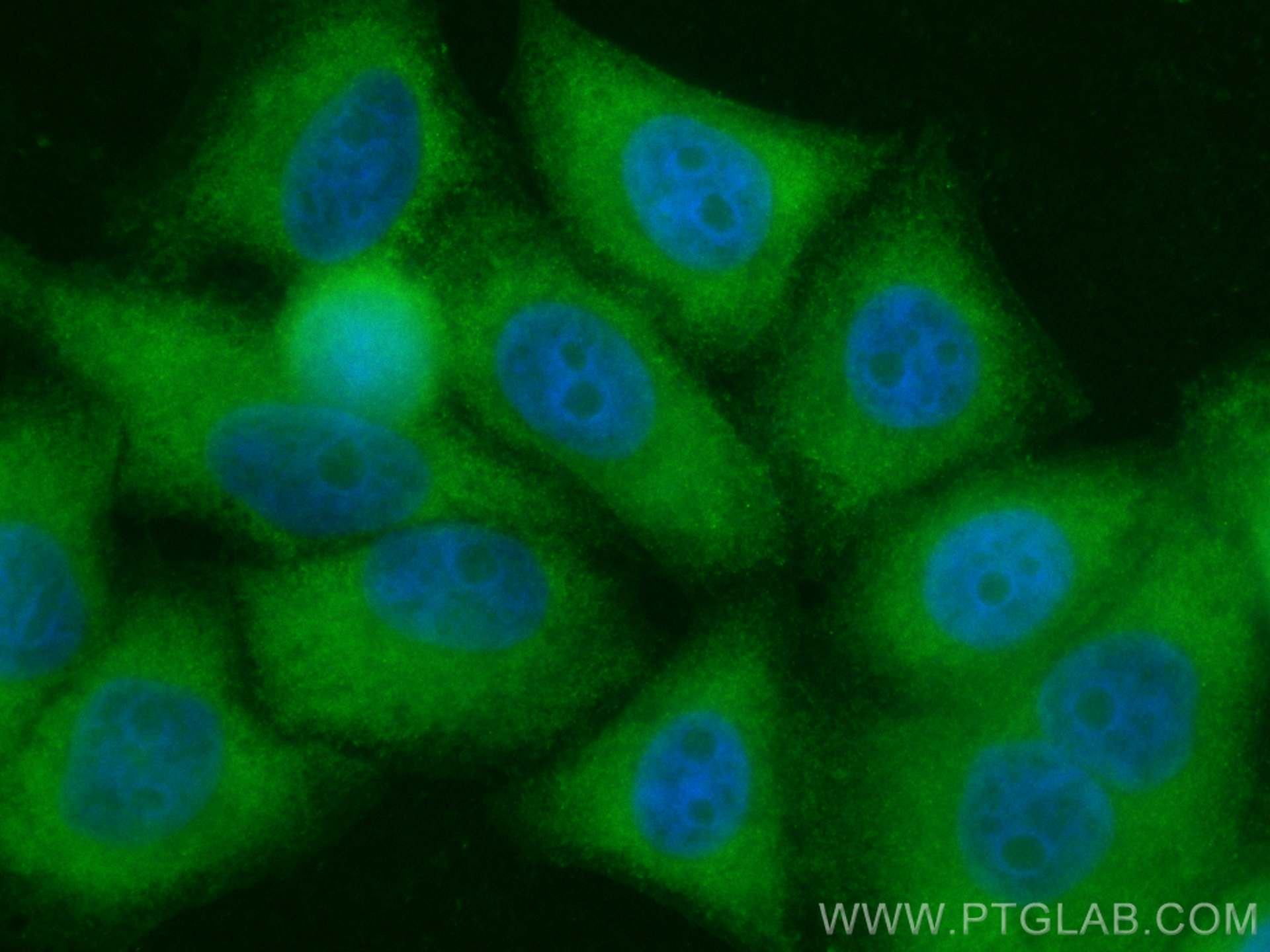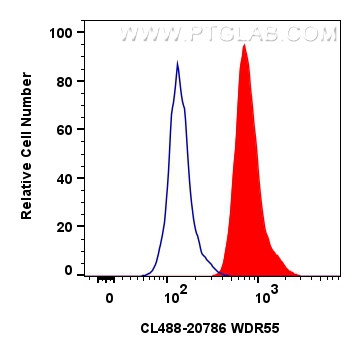CoraLite® Plus 488-conjugated WDR55 Polyclonal antibody
WDR55 Polyclonal Antibody for IF/ICC, FC (Intra)
Host / Isotype
Rabbit / IgG
Reactivity
human
Applications
IF/ICC, FC (Intra)
Conjugate
CoraLite® Plus 488 Fluorescent Dye
Cat no : CL488-20786
Synonyms
Validation Data Gallery
Tested Applications
| Positive IF/ICC detected in | HepG2 cells |
| Positive FC (Intra) detected in | HepG2 cells |
Recommended dilution
| Application | Dilution |
|---|---|
| Immunofluorescence (IF)/ICC | IF/ICC : 1:50-1:500 |
| Flow Cytometry (FC) (INTRA) | FC (INTRA) : 0.80 ug per 10^6 cells in a 100 µl suspension |
| It is recommended that this reagent should be titrated in each testing system to obtain optimal results. | |
| Sample-dependent, Check data in validation data gallery. | |
Product Information
CL488-20786 targets WDR55 in IF/ICC, FC (Intra) applications and shows reactivity with human samples.
| Tested Reactivity | human |
| Host / Isotype | Rabbit / IgG |
| Class | Polyclonal |
| Type | Antibody |
| Immunogen | WDR55 fusion protein Ag14241 |
| Full Name | WD repeat domain 55 |
| Calculated Molecular Weight | 383 aa, 42 kDa |
| Observed Molecular Weight | 42-50 kDa |
| GenBank Accession Number | BC002482 |
| Gene Symbol | WDR55 |
| Gene ID (NCBI) | 54853 |
| Conjugate | CoraLite® Plus 488 Fluorescent Dye |
| Excitation/Emission Maxima Wavelengths | 493 nm / 522 nm |
| Form | Liquid |
| Purification Method | Antigen affinity purification |
| Storage Buffer | PBS with 50% Glycerol, 0.05% Proclin300, 0.5% BSA, pH 7.3. |
| Storage Conditions | Store at -20°C. Avoid exposure to light. Stable for one year after shipment. Aliquoting is unnecessary for -20oC storage. |
Background Information
WD repeat domain 55 (WDR55) also named as, FLJ20195, is a 383 amino acid protein, which contains seven WD repeats and belongs to the WD repeat WDR55 family. WDR55 localizes in the nucleus and cytoplasm. WDR55 acts as a modulator of rRNA synthesis and play a central role in organogenesis.
Protocols
| Product Specific Protocols | |
|---|---|
| IF protocol for CL Plus 488 WDR55 antibody CL488-20786 | Download protocol |
| FC protocol for CL Plus 488 WDR55 antibody CL488-20786 | Download protocol |
| Standard Protocols | |
|---|---|
| Click here to view our Standard Protocols |



